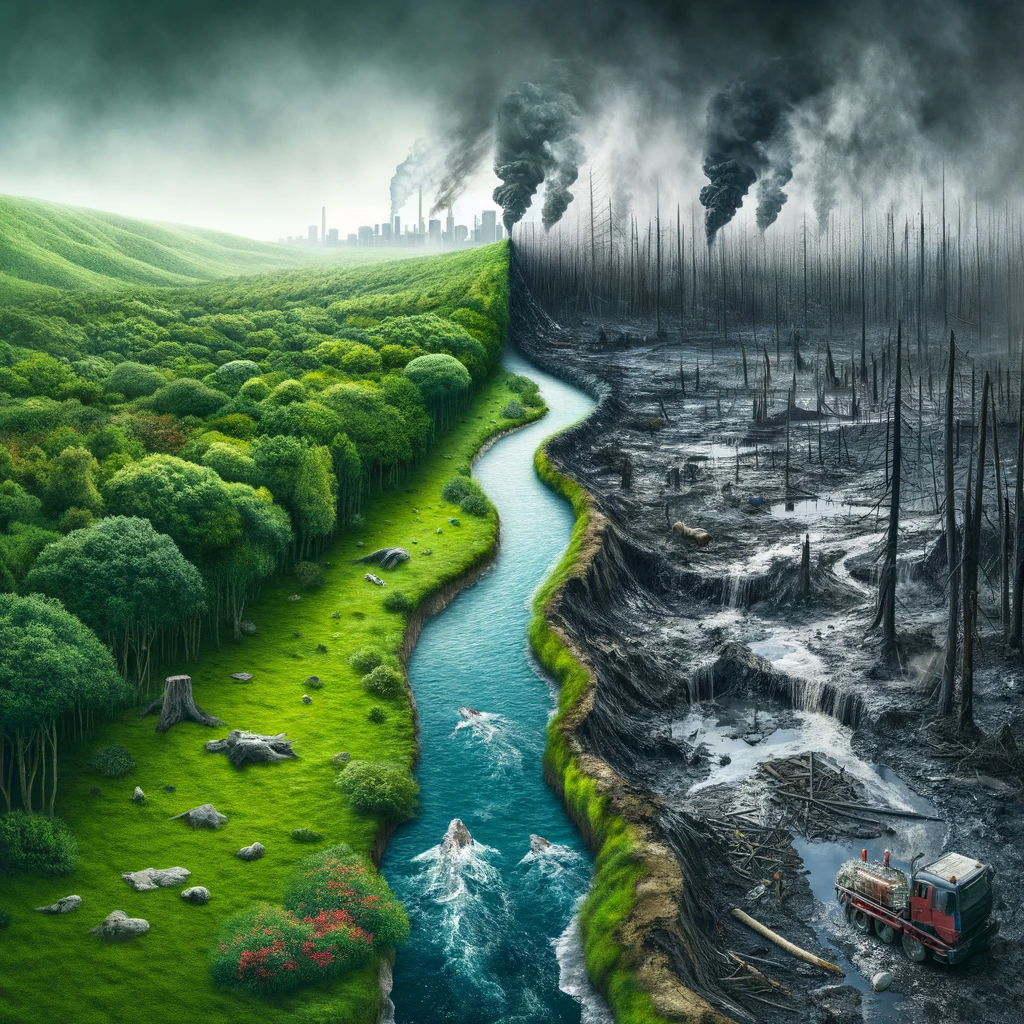Petroleum, often hailed as the lifeblood of modern civilization, powers our vehicles, industries, and homes. However, its production and use come with a substantial environmental price tag. This article delves into the often overlooked environmental costs of petroleum, from extraction to consumption, and the profound impacts these have on our planet.

The Lifecycle of Petroleum and Its Environmental Impact
From Extraction to Emission
The journey of petroleum begins with its extraction, a process that can have detrimental impacts on local ecosystems. The environmental cost continues as petroleum is refined, transported, and ultimately burned as fuel, releasing harmful emissions into the atmosphere.
Water and Air Pollution
Petroleum production is a significant source of water and air pollution. Oil spills, both on land and at sea, can devastate ecosystems. The burning of fossil fuels releases pollutants like nitrogen oxides and sulfur dioxide, contributing to air pollution and acid rain.
Climate Change and Global Warming
The Carbon Footprint of Petroleum
The combustion of petroleum products is a major contributor to global greenhouse gas emissions, primarily carbon dioxide (CO2). These emissions are key drivers of climate change, leading to rising global temperatures, melting ice caps, and erratic weather patterns.
Methane Emissions from Oil Fields
Apart from CO2, petroleum production also releases methane, a potent greenhouse gas. Methane emissions, whether from accidental leaks or flaring, exacerbate the greenhouse effect, significantly impacting global warming.
Biodiversity Loss and Habitat Destruction
Impact on Terrestrial and Marine Life
The exploration and extraction of petroleum often lead to habitat destruction. In terrestrial environments, this can mean deforestation and disruption of land ecosystems. In marine settings, oil spills and drilling activities pose a grave threat to aquatic life.
The Ripple Effect on Ecosystems
The environmental impact of petroleum extends beyond direct pollution. The alteration of habitats and ecosystems can have cascading effects, disrupting food chains and leading to the loss of biodiversity.
Human Health and Social Impacts
Health Risks Associated with Pollution
The environmental costs of petroleum production also have direct and indirect effects on human health. Communities near extraction sites or refineries often face higher risks of respiratory and cardiovascular diseases due to air and water pollution.
Social and Economic Consequences
The environmental degradation caused by the petroleum industry can have social and economic consequences, particularly for communities that rely on natural resources for their livelihoods, such as fishing and agriculture.
Toward Sustainable Practices
The Shift to Renewable Energy
One of the key strategies in mitigating the environmental cost of petroleum is the transition to renewable energy sources. Solar, wind, and hydroelectric power offer cleaner alternatives to fossil fuels.
Innovations in Energy Efficiency and Conservation
Advancements in energy efficiency and conservation practices are crucial. This includes the development of more fuel-efficient vehicles, improved industrial processes, and public awareness about energy conservation.
Conclusion: A Call for Collective Action
The environmental cost of petroleum is a global concern that requires collective action. Governments, industries, and individuals must work together to reduce reliance on fossil fuels, invest in sustainable technologies, and protect our planet for future generations. By understanding the full environmental cost of petroleum, we can make informed decisions and take responsible actions towards a more sustainable and environmentally friendly future.

